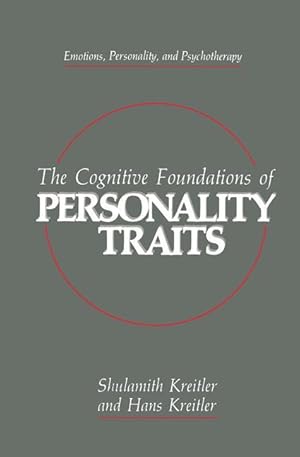Cognitive Foundations Personality Traits by Kreitler Shulamith (8 results)
Search filters
Product Type
- All Product Types
- Books (8)
- Magazines & Periodicals (No further results match this refinement)
- Comics (No further results match this refinement)
- Sheet Music (No further results match this refinement)
- Art, Prints & Posters (No further results match this refinement)
- Photographs (No further results match this refinement)
- Maps (No further results match this refinement)
- Manuscripts & Paper Collectibles (No further results match this refinement)
Condition Learn more
- New (6)
- As New, Fine or Near Fine (1)
- Very Good or Good (1)
- Fair or Poor (No further results match this refinement)
- As Described (No further results match this refinement)
Binding
Collectible Attributes
- First Edition (No further results match this refinement)
- Signed (No further results match this refinement)
- Dust Jacket (No further results match this refinement)
- Seller-Supplied Images (3)
- Not Print on Demand (8)
Language (1)
Price
- Any Price
- Under £ 20 (No further results match this refinement)
- £ 20 to £ 40 (No further results match this refinement)
- Over £ 40
Free Shipping
Seller Location
Seller Rating
-
Condition: Good. 1990th Edition. Used book that is in clean, average condition without any missing pages.
-
The Cognitive Foundations of Personality Traits (Emotions, Personality, and Psychotherapy)
Seller: Lucky's Textbooks, Dallas, TX, U.S.A.
Condition: New.
-
The Cognitive Foundations of Personality Traits (Emotions, Personality, and Psychotherapy)
Seller: Lucky's Textbooks, Dallas, TX, U.S.A.
Condition: New.
-
Condition: New.
-
Condition: New.
-
Taschenbuch. Condition: Neu. The Cognitive Foundations of Personality Traits | Shulamith Kreitler (u. a.) | Taschenbuch | xv | Englisch | 2013 | Springer | EAN 9781489922298 | Verantwortliche Person für die EU: Springer Verlag GmbH, Tiergartenstr. 17, 69121 Heidelberg, juergen[dot]hartmann[at]springer[dot]com | Anbieter: preigu.
-
Paperback. Condition: Brand New. reprint edition. 420 pages. 9.26x6.11x1.00 inches. In Stock.
-
The Cognitive Foundations of Personality Traits (Emotions, Personality, and Psychotherapy)
Seller: Mispah books, Redhill, SURRE, United Kingdom
Hardcover. Condition: Like New. Like New. book.






